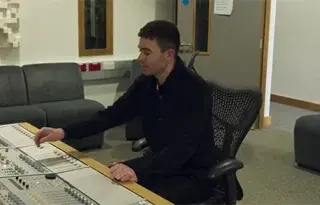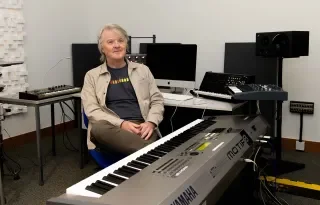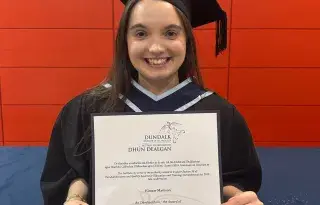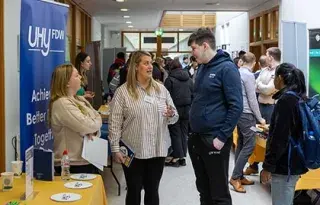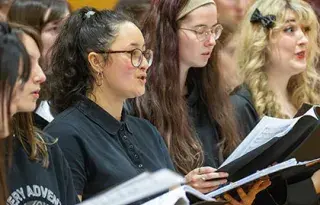BA in Audio and Music Production
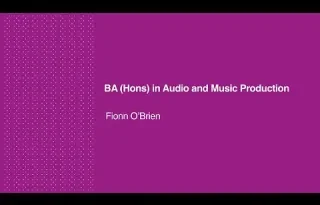
Search to find a different course
Course Overview
This course delivers the creative and technical skills needed to work professionally in the music and rapidly expanding audio industries. Trained in the use of industry standard and advanced technologies housed in extensive production facilities, graduates are capable of assuming key roles in the process of bringing the intentions of the client to a commercially viable conclusion.
The course modules nurture a deep understanding of musicality and acoustics, to capture, enhance and manipulate audio elements, ensuring an informed and quality-driven approach to all production stages. Production is often a collaborative process, and this is also reflected in the programme design. Students collaborate with their peers from other creative courses to produce music, videos, showcase events, live broadcasts, computer games etc., ensuring our graduates are ready to work as part of a team to bring ambitious artistic visions to life.
What makes this course different
Extensive Production Facilities
Our extensive facilities include a Recording Studio Suite (4x Audient equipped control rooms with isolation booths and large central performance room), Electronic Music Production Studio and Mastering Studio, amongst others. Learn more about the facilities
Opportunity to Study Abroad
In Year 2, students have the opportunity to study abroad for one semester at Kingston University in London.
Understanding the Industry
Audio and music production industries are dynamic and evolving fields that encompass the entire process of crafting sound recordings and musical compositions.
Audio in this context covers all tasks related to sound production, from recording to mastering and typically involves working with dialogue, field recordings, foley, sound effects, music and sound design for platforms such as film, TV, video games, podcasts etc. The prevalence of gaming, virtual and augmented realities, and the rapid expansion of the live industries has seen a significant rise in demand for the creative and technical skills of the audio specialist.
Music production is the process by which music is created, captured, manipulated, and preserved so that it can be distributed and enjoyed. Whether it is creating chart-topping hits, designing immersive soundscapes for films and games, or mastering tracks for commercial release, audio and music production enrich our lives through the power of sound.
Career Opportunities
Music Production
- Record/Music Producer
- Recording Engineer
- Mixing Engineer
- Mastering Engineer
- Composer
- Studio Manager
Audio Production
- Computer Game Production
- Audio Programmer
- Television & Film Sound Professional
- Sound Designer
- Sound Recordist
- Foley Artist
- Audio Post Production
- Radio Producer
Live & Event Production
- Live Sound Engineer
- Live Broadcast Engineer
- Audio Visual Technician
- Event Technician
Other Fields
- Audiology
- Music Journalism
- Instruction/Tuition
Graduates work at
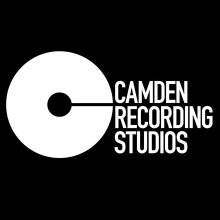
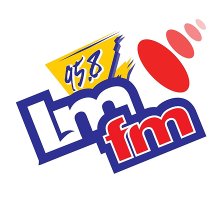

Course Delivery and Modules
The course is delivered through a combination of lectures, tutorials and practicals with a highly applied focus on ‘hands-on’ skills. Basic music theory and keyboard skills tuition are built into the programme, which generally adopts a ‘from the ground up’ approach.
- Microphone Applications and the Recording/Playback Chain
- Properties of Sound
- The Digital Audio Workstation
- Introduction to Musicianship
- Academic Writing and Research Skills
- Recording Electric and Acoustic Instruments
- Studio Environment
- Music Production Content Analysis
- Popular Music Genre Studies
- Musicianship for the Music Producer
- Sound Synthesis
- Audio Signal Processing
- Mixing Fundamentals
- Elements of Popular Music: Piano & Strings
- Production Project 1
- Vocal Production
- Live Sound
- Elements of Popular Music: Songwriting
- Production Project 2
- Electronic Music Production
Electives:
- Semester Abroad (at Kingston University in London)
- Audio Industries
- Electroacoustic Composition
- Work Placement (6 Weeks)
- Advanced DAW Techniques
- Studio Acoustics
- Advanced Live Sound
- Sound Design & Implementation
- Production Project 3
Work placement
In Year 3 students undertake a 6 week industry work placement where they gain important contacts within the industry to help them in their future careers.
Education Progression
On completion of this course, students will be eligible to apply to Year 4 of the Level 8 course: BA (Hons) in Audio & Music Production. (This will be subject to student numbers. Where places are limited, offers will be linked to final GPA achieved.)
BA (Hons) in Audio and Music Production
Fees and Funding
Please find information on fees and funding here: www.dkit.ie/fees
Entry requirements
Standard entry requirements apply. There are no special entry requirements for this course. There is no audition process or need to play an instrument for this programme.
- Standard Requirements for Leaving Certificate Applicants
- Standard Requirements for UK/NI Applicants
- Standard Requirements for QQI-Further Education Applicants
Recent CAO points
How to apply
Apply on CAO
All standard entry first-year applicants must apply for entry through the CAO. See Important application dates for CAO and information for specific applicant types below:
Advanced Entry & Transfer Applications
Advanced Entry is for applicants who have previous educational achievements and/or work experience and want to be considered for direct entry into year 2, 3, or 4 of a course. This includes students looking to transfer to DkIT from another Higher Education provider.
International Application (non-EU)
International Applicants (not from or living in the EU) can apply through an agent or directly to DkIT to study this course.
Ask us a Question
If you have a question about the BA in Audio and Music Production please ask it below and we will get back to you.
Course News
View all NewsDisclaimer: All module titles are subject to change and for indicative purposes only. All courses are delivered subject to demand and timetables are subject to change. Elective Module options will only run subject to student numbers. The relevant Department will determine the viability of each elective module option proceeding depending on the number of students who choose that option. Students will be offered alternative elective modules on their programme should their preferred elective option not be proceeding. Award Options for Common Entry Programmes: The relevant Department will determine the viability of each award option proceeding depending on the number of students who choose either option. If the numbers for one of the Award options exceed available places, students for this option will be selected based on Academic Merit (highest grades).
